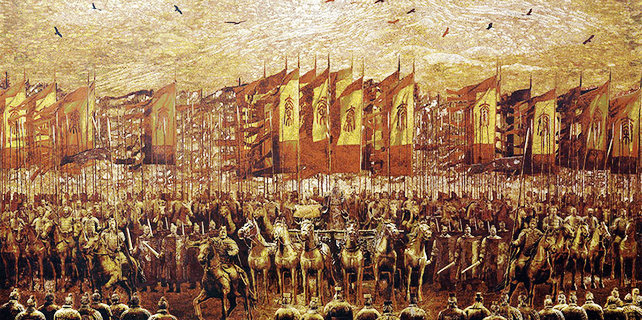Family Business Network makes it debut in China
More than 32 million family-run businesses in China are currently being passed down from one generation to the other, and if this critical transition is not managed properly, the world economy will be severely impacted.
Chavalit Frederick Tsao, the chairman of Family Business Network (FBN) Asia, said that this was the reason why he decided to hold this year's FBN Global Summit in China for the first time.
The consequences of a shaky transition can indeed be devastating. According to China's Ministry of Industry and Information Technology, 60 percent of the country's GDP is contributed by privately-owned companies, which in China refer primarily to family businesses, while up to 80 percent of job opportunities in the country are provided by such entities.
Founded in 1989 in Switzerland, FBN is a non-profit international network committed to the strengthening of family businesses around the world. Today, FBN has more than 10,300 individual members from over 3,210 family businesses across 58 countries. Some of its most notable members include Swarovski, Ferrari and Galeries Lafayette.
Yu Jiangbo, who hails from the second generation of Neoglory Holdings Group, one of China's best-known jewelry companies, is the chairman of FBN China.
FBN shares best practice and knowledge to help such businesses achieve sustainability and longevity. According to Tsao, only 14 percent of family businesses around the world become multi-generational. The percentage is even lower in China.
Tsao, the fourth generation owner of Singapore-headquartered shipping company IMC Pan Asia Alliance, noted that one of the biggest challenges facing family businesses is achieving sustainability. He compared owners of family businesses to marathon runners. Listed or public companies, on the other hand, are akin to sprinters.
"Family businesses have to think long term in terms of generations. If you are not a family business, you only justify yourself quarter after quarter," said Tsao, during an interview after the global summit.
Tsao believes that FBN has opened a regional chapter by holding the global summit in China and emphasizes that the organization hopes to, in addition to promoting sustainability in family businesses, make a difference in China's commercial evolution.
Tsao's father, Tan Sri Frank Tsao, graduated from St. John's University in Shanghai in 1945 before working in trading, transportation and banking companies that his family owned. He later ventured to Hong Kong where he co-founded Great Southern Steamship Co Ltd and International Maritime Carriers Ltd (IMC) in 1949 and 1966 respectively.
Born in 1957, Tsao joined the family business in 1977 after graduating from the University of Michigan. In 1995, Tsao defied the old Chinese saying that "family businesses or wealth cannot go beyond three generations" when he took over the reins. He even managed to transform the business from a traditional shipping company to a global conglomerate that today boasts diverse business interests in more than 16 countries.
But Tsao's astute business acumen was evident even before he took over the family business. In the 1980s, he decided to invest in the poorly performing Unithai Shipyard, which was located in a remote part of Thailand, and dug deep in order to turn its fortunes around.
"It did not seem like a sensible move to make," said the 59-year-old of the decision to take over the shipyard. "But we managed to build the industry around the shipyard and turn it into the only major shipping facility in the country, which meant that we got all the business."
"I did it because I saw how Japan and Korea were industrialized. I knew the same thing would happen in Thailand, but I just didn't know when. In this case, it was 15 years. But when you are completely funded by yourself and have no loans to repay, you have no pressure. You just wait until the time comes," added Tsao.
When it comes to long and committed investments of this kind, Tsao emphasized that money is never the biggest challenge. Rather, it is about having a clear vision.
"It's all about investing effort, time and passion into the search for a solution. That's the expensive part. But that is also the part that helps you become a better entrepreneur," said Tsao.
xujunqian@chinadaily.com.cn
















